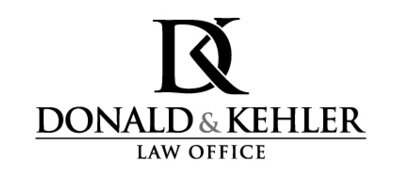Best Foreclosure Lawyers in Brandon
Share your needs with us, get contacted by law firms.
Free. Takes 2 min.
Free Guide to Hiring a Real Estate Lawyer
List of the best lawyers in Brandon, Canada
About Foreclosure Law in Brandon, Canada
Foreclosure is a legal process that involves the repossession of a property by a lender due to the borrower’s inability to continue making mortgage payments. In Brandon, Canada, like other parts of the country, foreclosure is typically a last resort for lenders after all other attempts to resolve the default have failed. The process is regulated by both federal and provincial laws, ensuring that the rights of both the borrower and the lender are considered. In Manitoba, where Brandon is located, lenders must follow specific procedures before they can repossess a property, which can provide a window of opportunity for borrowers to seek legal advice and explore solutions.
Why You May Need a Lawyer
There are several situations where individuals may require legal assistance during the foreclosure process in Brandon. A lawyer can help if:
- You are receiving foreclosure notices and do not fully understand your rights and obligations.
- You wish to negotiate with the lender to modify the loan terms to avoid foreclosure.
- You believe that the lender is not complying with the legal procedures for foreclosure.
- You wish to explore possible defenses in foreclosure proceedings.
- You are considering voluntarily surrendering the property and need advice on the consequences.
- You require representation in court proceedings related to the foreclosure.
Local Laws Overview
Foreclosure in Manitoba, including Brandon, is governed by the Manitoba Court of Queen's Bench Rules and the mortgage agreement itself. Key aspects include:
- The right of redemption period, during which the borrower can reclaim their property by paying off the owed amounts.
- The requirement for lenders to serve formal Notice of Application for Sale or Foreclosure.
- Court approval before the sale of the property can proceed.
- Borrowers may be required to pay any deficiency if the property sells for less than the owed mortgage balance.
- The possibility of seeking judicial intervention to delay the foreclosure process under certain circumstances.
Frequently Asked Questions
What is the first step in the foreclosure process in Brandon?
The process typically begins with the lender issuing a Notice of Default, informing the borrower of the default and providing a period to rectify it.
How long does the foreclosure process take?
The duration of the foreclosure process can vary, but it typically takes several months, involving notices, court procedures, and possible sale of the property.
Can I stop a foreclosure from happening?
Yes, borrowers can attempt to stop foreclosure by negotiating with the lender, refinancing, selling the property, or paying off the owed amount within the redemption period.
What is a deficiency judgment?
A deficiency judgment is when a lender seeks to recover the difference between the amount owed on a mortgage and the sale price of the property if it sells for less than the mortgage balance.
What happens to my belongings if my home is foreclosed?
Foreclosure affects the property itself, not personal belongings. Borrowers typically need to vacate and remove personal items by the possession date set by the court or lender.
Are there alternatives to foreclosure?
Yes, alternatives include loan modification, refinancing, short sale, deed in lieu of foreclosure, or filing for bankruptcy.
What should I do if I receive a foreclosure notice?
Contact a lawyer immediately to understand your options, rights, and potential defenses. Acting quickly can help you explore more solutions.
Can I rent the property during foreclosure proceedings?
Yes, but it is crucial to understand the terms of your mortgage agreement and consult a lawyer to avoid breaching any terms that could exacerbate the situation.
What happens if I ignore the foreclosure notice?
Ignoring a foreclosure notice can lead to inevitable loss of property and potentially more severe financial repercussions. It's essential to respond promptly and seek legal assistance.
Can a foreclosure affect my credit score?
Yes, foreclosure can significantly impact your credit score, which can affect your ability to obtain new loans or credit in the future.
Additional Resources
Here are some resources and organizations that can provide assistance and information:
- Manitoba Law Society - For lawyer referrals and legal resources.
- Manitoba Court of Queen's Bench - For information on court procedures and rules.
- Canada Mortgage and Housing Corporation (CMHC) - For housing-related programs and guidance.
- Money Mentors - For financial counseling and advice.
Next Steps
If you are facing foreclosure, consider taking the following steps:
- Contact a lawyer specialized in foreclosure law in Manitoba to discuss your situation.
- Gather all relevant documents, including mortgage agreements, notices, and any correspondence with the lender.
- Explore all options, including loan modification, sale, or refinancing, with the assistance of a legal or financial advisor.
- Stay informed about your rights and obligations by regularly consulting legal resources and professionals.
- Consider attending informational workshops or seeking advice from non-profit organizations specializing in foreclosure or housing issues.
Lawzana helps you find the best lawyers and law firms in Brandon through a curated and pre-screened list of qualified legal professionals. Our platform offers rankings and detailed profiles of attorneys and law firms, allowing you to compare based on practice areas, including Foreclosure, experience, and client feedback.
Each profile includes a description of the firm's areas of practice, client reviews, team members and partners, year of establishment, spoken languages, office locations, contact information, social media presence, and any published articles or resources. Most firms on our platform speak English and are experienced in both local and international legal matters.
Get a quote from top-rated law firms in Brandon, Canada — quickly, securely, and without unnecessary hassle.
Disclaimer:
The information provided on this page is for general informational purposes only and does not constitute legal advice. While we strive to ensure the accuracy and relevance of the content, legal information may change over time, and interpretations of the law can vary. You should always consult with a qualified legal professional for advice specific to your situation.
We disclaim all liability for actions taken or not taken based on the content of this page. If you believe any information is incorrect or outdated, please contact us, and we will review and update it where appropriate.









